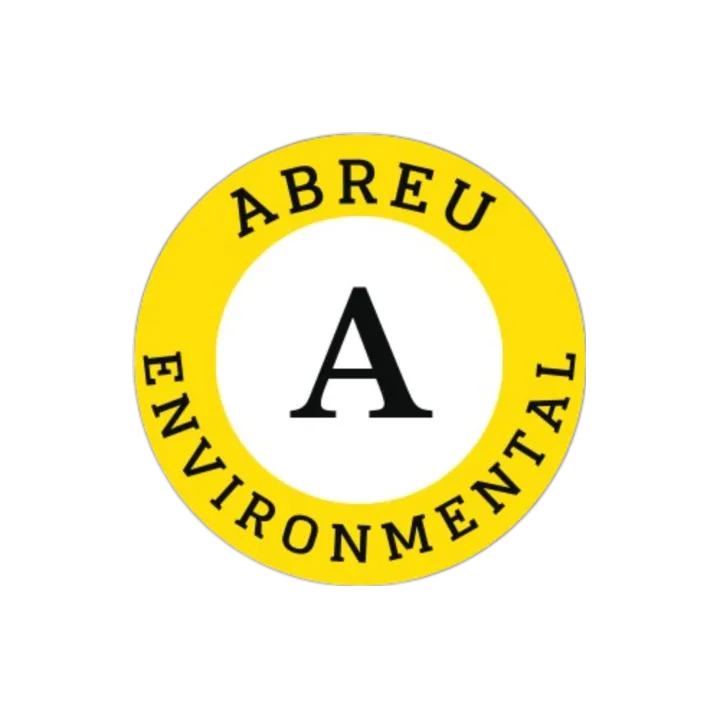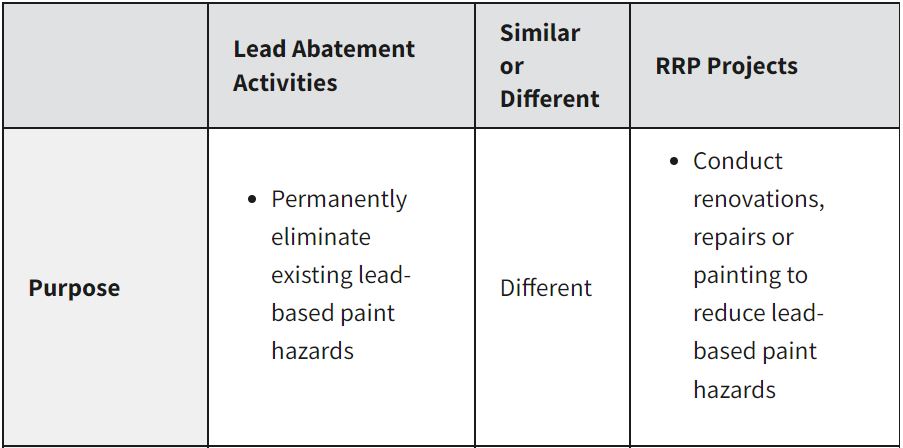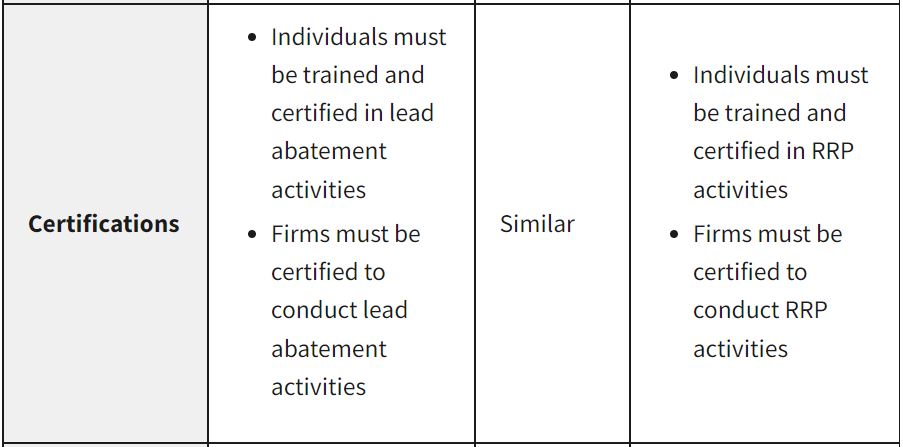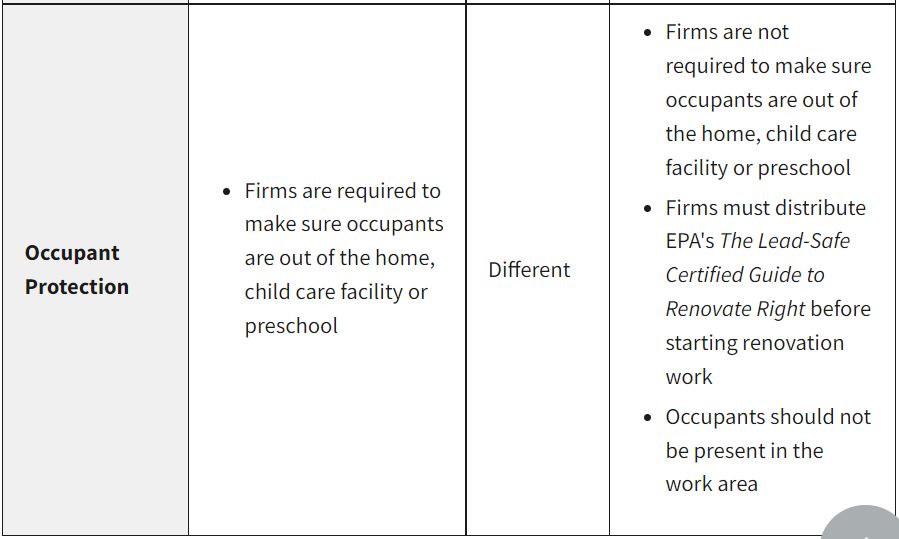Lead Abatement Versus Lead RRP
Abatement and RRP activities may sometimes look similar, but they are not!
Abatement is a specialized activity designed to address lead in the home. RRP activities (including most home contracting work) disturb paint as a consequence of the activity, but they are often undertaken for reasons unrelated to lead issues.
Lead-Based Paint Activities (Abatement)
- Lead-Based Paint Activities include lead-based paint inspections, risk assessments and abatements (lead-based paint removal).
- Lead abatement projects are designed to permanently eliminate existing lead-based paint hazards. They may be ordered by a state or local government in response to a lead-poisoned child or other reason, or may be undertaken voluntarily at any time.
- Lead risk assessments are designed to identify lead hazards and management strategies, and lead inspections are designed to locate all lead-based paint in a home.
- Individuals must be trained and certified to conduct lead-based paint activities, and firms must be certified.
- Lead-based activities are regulated differently than renovation, repair and painting jobs, even though, in some cases, the activities are similar.
- Learn more about EPA's Lead-Based Paint Activities program.
Renovation, Repair and Painting (RRP)
- RRP projects are typically performed at the option of the property owner for aesthetic or other reasons, or as an interim control to minimize lead hazards. It is NOT designed to permanently eliminate lead-based paint hazards.
- Since RRP projects can disturb lead-based paint in homes and buildings built before 1978, thus creating new lead hazards, individual renovators must be trained and certified lead-safe RRP practices, and firms must be certified.
- Learn more about EPA's RRP certification and training program .
Lead Abatement Activities versus RRP Projects
Lead abatement activities and RRP projects may sometimes look similar, but they are two separate programs that require different certifications and are regulated differently by EPA. The similarities and differences between the two are shown in the table below.







